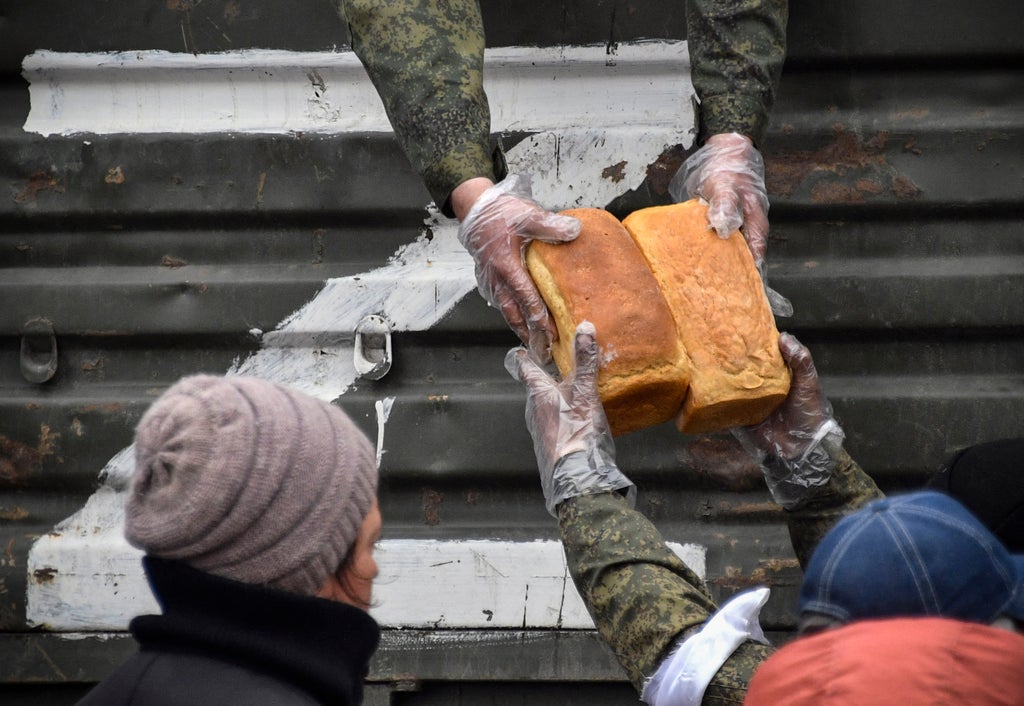
The World Bank has warned that a “human catastrophe” is unfolding due to a rising food crisis across the world triggered by the Russian invasion of Ukraine, impacting global nutrition.
"It’s a human catastrophe, meaning nutrition goes down. But then it also becomes a political challenge for governments who can’t do anything about it, they didn’t cause it and they see the prices going up," World Bank president David Malpass said in an interview with the BBC.
Mr Malpass warned that the historic rise in the food prices could lead hundreds of millions people across the world into poverty and lower nutrition, if the crisis keeps growing.
According to estimates by the World Bank, there could be a huge 37 per cent spike in prices of food which will be “magnified for the poor”, who will “eat less and have less money for anything else such as schooling.
“...And so that means that it’s really an unfair kind of crisis. It hits the poorest the hardest. That was true also of Covid”, the report added.
The World Bank top official added that the price spikes are broad and deep.
“It’s affecting food of all different kinds… oil, grains, and then it gets into other crops, corn crops, because they go up when wheat goes up,” Mr Malpass said.
He added that while there was enough food in the world to feed everyone and even the global stockpiles are large by historical standards, there will have to a sharing or sales process to make sure the food reaches where it is needed.
He also suggested that the countries should not subsidise production or cap prices.
The focus, instead Mr Malpass said, needs to be on increasing supplies of fertilisers and food across the world, in addition to the targeted assistance for the very poorest people.
Warning of a knock on “crisis within a crisis” springing from the inability of developing nations to service their large pandemic debts even as the prices of food and energy rise.
Mr Malpass said: "This is a very real prospect. It’s happening for some countries, we don’t know how far it’ll go. As many as 60% of the poorest countries right now are either in debt distress or at high risk of being in debt distress.”
He added: "We have to be worried about a debt crisis, the best thing to do is to start early to act early on finding ways to reduce the debt burden for countries that are on have unsustainable debt, the longer you put it off, the worse it is”.
The remarks of Mr Malpass came on the sidelines of the IMF and World Bank meetings in Washington.
Pledging support to Ukraine, the World Bank is disbursing rapidly to the besieged country “to support the continuation of essential government services and private sector activity”, the body’s president said.
“We have mobilized $1bn so far and are preparing another $1.5bn package. Parallel funding and bilateral guarantees are helping leverage this package. We set up a Multi-Donor Trust Fund that will disburse donor grants in a targeted, rapid, and secure manner,” he added.
The impact, Mr Malpass said, is reaching far beyond the borders of eastern Europe in part through the price spikes in food, fertilizer, and energy.
“We are responding directly, and we will be presenting to our Board a 15-month crisis response envelope of around $170bn to cover April 2022 through June 2023. The $93bn package of IDA20 will be an important part of this effort,” he said at the 2022 Spring meetings.







